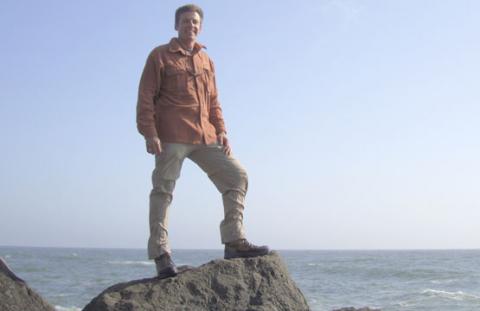
Matson, Inc.
With America being the world's largest trading nation and most of that trade occurring by sea, the maritime industry is growing. With this growth comes an array of challenges and those who bring a maritime policy skill set to the table will find many opportunities.
Education
- B.S., Marine Transportation/Marine Engineering, U.S. Merchant Marine Academy
- M.S., Marine Policy, University of Delaware College of Marine Studies
Salary
$125,000+
Contact
What is your current job and what does it entail?
I am the director of safety, security and emergency response within the Safety, Quality and Environment Group at Matson, Inc., based in California. In this position, I am responsible for vessel and employee safety and security programs for the Matson companies. I maintain valid deck and engine U.S. Coast Guard licenses and am currently commissioned as a captain in the U.S. Navy Reserve in the Navy's Strategic Sealift Program. Prior to joining Matson, I was employed by APL, Ltd, most recently serving as the head of security and environment, Americas.
After graduation, I sailed for Keystone Shipping before coming ashore to serve as director of public affairs for the Maritime Exchange for the Delaware River and Bay. Appointed by the President, I then served in the U.S. Department of Transportation, Maritime Administration (MARAD) as special assistant to the maritime administrator and later as senior advisor for Maritime Policy. After MARAD, I returned to the private sector as the Pacific Maritime Association (PMA) assistant director, security and accident prevention, participating in the formulation of safety policy for PMA member terminal operators before joining APL.
What was the key factor in your career decision?
My career has always had a maritime slant by design. The key factor is undoubtedly my time spent at the U.S. Merchant Marine Academy. After graduating and fulfilling my sailing obligation, I recognized that if I were to come ashore, the career opportunities would be numerous given the right education. I chose the master of marine policy degree at the University of Delaware's College of Marine Studies because it provided more than just policy skills; it also exposed me to all facets of the uses of the ocean. I knew I could continue to focus on the maritime industry and do so from a variety of approaches such as government service, port security or the environment.
What do like most about your career?
I enjoy the heritage and the opportunity to make a difference. The maritime industry is filled with professional people who take pride in what they do. America’s maritime heritage pre-dates the Declaration of Independence and its merchant mariners have served in peace and war since 1775. Serving in positions that allow one to create and improve upon policies and regulations, such as those relating to the environment, gives me the chance to add to that heritage.
What do you like least about your career?
When affecting change, one hopes it will happen quickly. As someone who is eager to move things along, sometimes the slow pace can be frustrating but it does provide one with the opportunity to tweak and improve upon the product before it is final.
What do you do to relax?
Marin County and all of California seem to be designed with being outside in mind. My family and I take advantage of that fact whenever we can by mountain biking, hiking, backpacking, camping, or just spending time outdoors as a family. Traveling is also a big part of our leisure time and we look forward to exploring new places both near home and around the world.
Who are your heroes/heroines?
I truly admire the brave merchant mariners of World War II. Per capita, they lost more people than any other service branch. In the beginning of the war, they faced they enemy unarmed and their ships were sunk at a horrific rate. They armed their ships and fought on. Without the goods they delivered, the Allies would not have won. Following victory, they faced discrimination despite their noble service. Through incredible determination, they eventually received recognition for their work. It's their gallantry and perseverance that I admire the most.
What advice would you give a student who expressed an interest in pursuing a career in your field?
As you look to define your educational path after high school, there is an excellent opportunity to get a world-class maritime education without the high cost of paying for college. My advice would be to take a hard look at my alma mater, the U.S. Merchant Marine Academy, commonly known as Kings Point. Kings Point provides one a four-year bachelor of science degree in exchange for a service obligation after graduation. As the service obligation allows one to work in the exact commercial field in which he or she studied, it's the perfect first step for anyone interested in maritime policy.
Are career opportunities in your field increasing or decreasing and why?
With America being the world's largest trading nation and most of that trade occurring by sea, the maritime industry is growing. With this growth comes an array of challenges and those who bring a maritime policy skill set to the table will find many opportunities.
What will you be doing 10 years from today?
I'll be enjoying watching my sons get started in their chosen careers. I also hope that I'll still be involved in world maritime affairs and making a difference for those who work with the sea.

